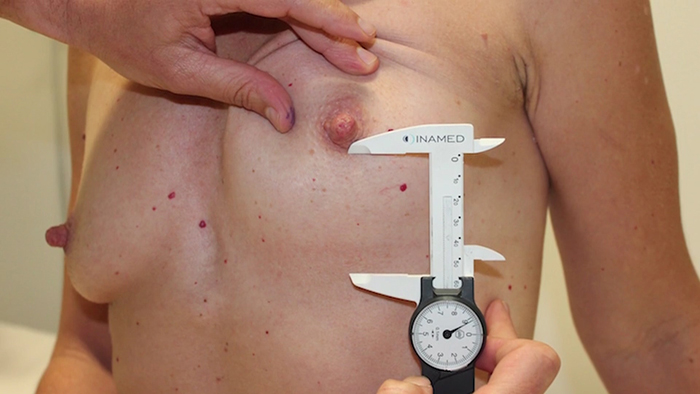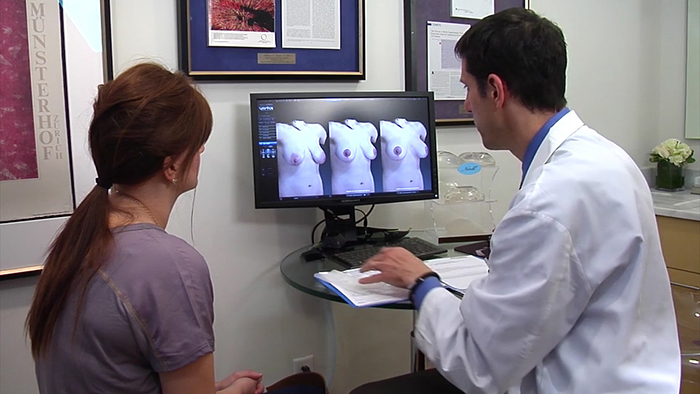One of the common reasons women have breast revision surgery is to change size. The cost and recovery time involved with a revision surgery can be avoided by selecting the right size the first time around. “We’ve got to pick an implant that fits their breast,” explains Dr. William P. Adams, Jr., who specializes in breast surgery. A thorough implant size selection process can be the difference between a good breast augmentation and a great one.
Measure Twice, Cut Once
While the saying is usually heard in a carpenter’s workshop, it also holds value in a plastic surgery office. “Measuring is the most important thing,” says Adams. Before deciding on an implant size selection, he carefully measures each patient’s chest. Measurements include the base width of the breast and the nipple to fold distance. Based on those dimensions, he knows what size implant will fit the patient’s chest without under or overfilling.

Say No to Stuffing Your Bra for Implant Size Selection
Many websites and even some surgeons encourage patients to stick implants or bags of rice in their bras when selecting implant size. This sizing method may do more harm than good in the planning process. “Implants in a bra overestimate the volume the patient is going to get, and distorts the distribution of the volume of the breast,” cautions Adams. “What happens is you’re doing that and the patient is thinking, ‘If I put a 300cc implant here, that is what I’m going to get,’ and they’re not going to get that.”
Say Yes to 3D Imaging for Precision
There is a better option than a bag of rice. Technology exists that allows your surgeon to take a snapshot of your chest from several angles at once and simulate your augmentation results in three dimensions. Dr. Adams and several colleagues conducted a study where they compared the actual post-operative results of breast augmentation patients to the results predicted by Vectra 3D Imaging. The 3D predictions were about 98% accurate. “We’ve found it to be a very good tool,” says Adams. “Three dimensional imaging helps the patient visualize what their result will be. The visual is worth a thousand words.”

Avoid Sizers in the Operating Room
Some surgeons leave the decision making to the operating room. During surgery, they use tools called implant sizers to compare options before deciding and placing the actual implants in the chest. “Not only is that a skewed view,” explains Adams, “but there’s a whole additional level of issues that come up when using sizers intraoperatively in terms of the amount of bacteria and the amount of trauma to the tissues.” By selecting an implant based on measurements, Adams is able to focus on the procedure in the operating room. He is not distracted by sizers or the decision-making process. “I tell patients that when we’re doing the surgery, it’s all about them, and performing the surgery as precisely and accurately as we can.”
Plastic Surgery International published an article earlier this year regarding implant sizers during surgery titled, “Does the Use of Intraoperative Breast Sizers Increase Complication Rates in Primary Breast Augmentation?” The researchers found that the use of implant sizers during surgery did correlate with a higher risk of complications. The study concluded that tissue-based planning is the safer, more-effective method for selecting an implant.